| |
| Munch: |
Was this country and western music on when you got here? |
| Officer: |
Uh, yes sir. |
| Munch: |
This is what killed her you know. The country and western music. |
| Officer |
I don't follow. |
| Munch: |
You don't follow? Listening to songs like I'd be Better Off in a Pine Box? |
| Officer: |
Well, I like country and western. |
| Munch: |
Sorry to hear that. What do you get when you play a country and western song backwards? |
| Officer: |
What? |
| Munch: |
You get your wife back, your job back, and your dog back. |
|
| |
|
Over the past twenty years or so, I've intermittently tried to recall what it was about my first and until recently solitary viewing of Robert Altman's 1975 Nashville that put me off the idea of seeing it again. Then again, that sometimes happens with films we see in our youth, when we're not always as receptive as we later become to the full palette of what cinema has to offer. But there was more to it than that. I'll freely admit that the music didn't help. Like Detective Munch above, I don't like country music. I mean, I really don't like it (I will make an exception for the late, great Johnny Cash, but Cash was a musical genre all of his own). And as you might expect, there's a lot of country music in Nashville. How could there not be? But I also seem to recall finding the drama uninteresting, the characters annoying, and for some peculiar reason having a particular dislike for an easy-going singer played Keith Carradine, an actor whose later work I have since championed on this site. Many years later, the only moment in the film I was able to clearly recall was something that happened right at the end, a vivid recollection that I realised would colour any subsequent viewing.
Thus when Eureka announced that they would be releasing Nashville on UK Blu-ray as part of their prestigious Masters of Cinema series, I experienced a small twitch of apprehension. I wasn't alone. When the Blu-ray release of a title of this importance and high regard is announced, it's usually a coin toss to decide which of the two lead reviewers gets to cover it. That, however, was not the case here. I have to confess that I twice tried to subtly push the task onto fellow reviewer Camus in the hope that he'd say something like, "Well, I could cover this one if that helps you out," but while he didn't turn me down, he also never formally accepted the assignment. I'd rather rashly assumed he would on the basis that his first film work in America was facilitated by Nashville's screenwriter, Joan Tewkesbury, for whom he clearly has considerable respect. That he's never got around to seeing Nashville might thus seem a little surprising, but herein lies the cause of our mutual hesitance – neither of us have ever been evangelists for the cinema of Robert Altman.
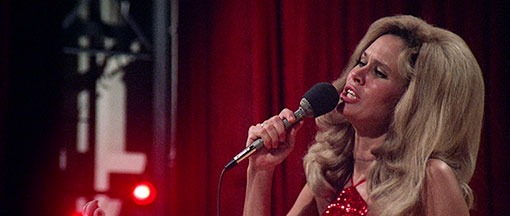
OK, I need to pause here and explain before I get hit in the face with a cinema bible. We both fully appreciate the importance of Altman's work and have enormous respect for him as a filmmaker, and I distinctly remember us exchanging saddened emails on the news of his death. I'm thus not about to start rubbishing Altman's work. No siree. The man was a genuine visionary and made films that were unique and influential enough to give birth to the adjective 'Altmanesque'. Over the years he has created a number of films that I have deeply admired, and he's influenced a number of talented filmmakers, Magnolia director Paul Thomas Anderson included. But he's also made a few films I have really disliked. That said, the very first Altman film I saw remains one of my all-time favourite movies, the gorgeously counterculture Korean war comedy M*A*S*H. And yes, I'm fully aware that it's critically far cooler to champion one of the director's lesser known and less commercially successful films. Tough shit. As far as I'm concerned, M*A*S*H was and still is a bona fide masterpiece and a film I can watch endlessly without ever becoming bored. And this is a film, as Camus recently pointed out, that has next to no plot, being composed instead of a string of hugely entertaining but often disconnected sequences, during the course of which a number of the characters undergo a degree of emotional change. Sort of. This, in essence, was the template for many of Altman's most celebrated subsequent works, Nashville included.
Returning to Nashville after a break of many years, but with a good many more movies under my belt, I was just a little surprised to find that many of the characters seemed every bit as irritating as I remember. But – and this is crucial – they are all interesting. Oh, they're definitely that. In this respect the film presents a far greater challenge to the viewer than the more audience-friendly M*A*S*H, whose stuffy and officious twerps were outnumbered and outmanoeuvred at every turn by an enormously likeable band of freewheeling anarchists. In Nashville just about everyone in the film has issues, some of which are pronounced enough to prompt a degree of viewer discomfort. And Nashville is a long film. If you don't engage with the characters on some level then you're in for a rough ride. There's little in the way of story – things happen, actions have consequences, and only a select few provide a sense of (partial) conclusion. But watching it again after all these years, I was completely hooked from a very early stage. And far from disliking Keith Carradine's character, it was he that I most quickly warmed to and it was his performance that I enjoyed the most. Clearly this was not going to be the film I remembered.
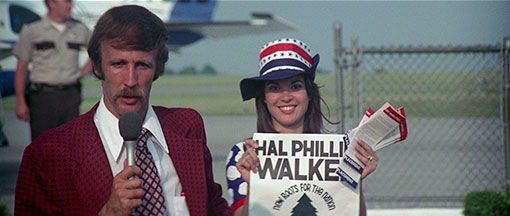
Initially Nashville plays like a cinematic snapshot of the time and place. Actually scrap that. The whole film plays like a cinematic snapshot of the time and place, one inspired and shaped by Joan Tewkesbury's experience when sent to the city by Altman to get a feel for the locale and its people. And people are everything here, a disparate collection whose back stories are only touched on but which nonetheless impact on their professional lives and the manner in which they interact with each other.
There's successful, white-dressed, good old boy singer Haven Hamilton (Henry Gibson), who puts the recording of a pompously patriotic song on hold to dismiss a long-haired keyboard player (played by the film's music arranger Richard Baskin), while Haven's son Buddy (Dave Peel) acts as his father's manager, but seems to have quiet ambitions as a singer himself. There's celebrated country star Barbara Jean (Ronee Blakley), who returns to the limelight after a period of illness, but collapses only minutes after stepping off the plane and is rushed off to hospital, where she is watched over by her testy husband and manager Barnett (Allen Garfield). Climbing the ladder to stardom is Connie White (Karen Black) who, although able to stand in for Barbara Jean when circumstances demand, has never been allowed to share the same billing. Kicking against the Country musician archetype is black singer Tommy Brown (Timothy Brown), who is berated in public by perpetually angry diner chef Wade (Robert DoQui), whose waitress Sueleen Gay (Gwen Welles) has ambitions to be a singer but just cannot hold a tune. Seemingly out of place here is popular folk musician and serial womaniser Tom Frank (Keith Carradine), whose former singing partners, husband and wife Bill and Mary (Allan Nicholls and Cristina Raines) are also in town and seem to languish in his shadow, while looking for the chance to prove her talent is Albuquerque (Barbara Harris), whose ambition no one seems willing to take that seriously, including her Texan husband Star (Bert Ramsen). Mother of two deaf children Linnea Reese (Lily Tomlin) is the only white singer in a black gospel group, while her lawyer husband Delbert (Ned Beatty) is working with campaign manager John Triplette (Michael Murphy), who is in town to drum up support for independent presidential candidate Hal Phillip Walker. Visiting his wife in the same hospital to which Barbara Jean is taken is ageing local resident Mr. Green (Keenan Wynn), who rents a room in his house to nervous young loner Kenny Fraiser (David Hayward), and whose flighty and anorexic niece Martha (Shelley Duvall) has changed her name to L.A. Joan and flirts with almost every man she meets. Floating on the periphery is a flamboyantly dressed dude (Jeff Goldblum) who rides aimlessly around on a three-wheeled motorcycle, and star-struck soldier Glenn Kelly (Scott Glenn), who follows Barbara Jean wherever she goes. And pestering just about everyone with a microphone and tape recorder is ditzy and intrusively pushy BBC documentarian Opal (Geraldine Chaplin).
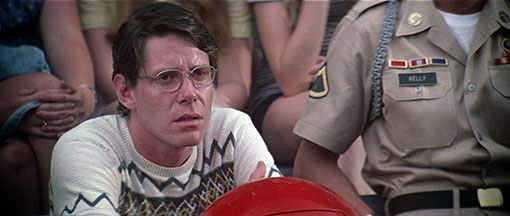
And these are the ones I can recall from memory and my hastily scribbled notes. I'm sure there are more. On the commentary track Altman informs us that there are a staggering twenty-four lead characters, all of whom we meet in the first fifteen minutes and who buzz around each other like electrons orbiting an invisible nucleus as it makes its way around the city of the title. Repeatedly they collide in a manner that should feel artificially coincidental but curiously never does, and we're left with the impression that in the city of Nashville, everyone is connected not by six degrees of separation but two.
There are no instant audience identification figures here and precious few that I'd even class as particularly likeable, and those who are tend to be cast as victims to some degree. Engagement grows with the passing of time. This happens quickly with Mr. Green, whose self-absorbed niece repeatedly dismisses his requests that she visit her aunt so that she can chase almost anything in trousers. The process is somewhat more gradual with Sueleen, whose painful unawareness of her lack of musical talent lands her a gig in which she is humiliated in a manner that should have all but the most insensitive squirming in their seats. It's the same story with Albuquerque, whose failed attempts to convince others of her talent reach a punishing peak when she performs an open mic session at a noisy racetrack, where her voice is drowned out by the roar of engines. This process of gradual empathy is reversed in the case of John Triplette, a pleasant enough and seemingly easy-going guy who the by the final scene you're itching to see take a metaphorical fall. Even the initially engaging Tom Frank is gradually revealed to be little more than an insensitive user, sleeping with any woman he can charm into his bed and then indifferently casting her aside to move on to the next.
As often with Altman, there's a degree of artificiality to characters that still feel somehow grounded in reality, and whether you like them or loathe them they are often compelling to watch and to listen to. There's a richness to the characterisations that doubtless springs from Altman encouraging his cast to improvise around Tewkesbury's script, and the different ways in which a character can be perceived. A prime example of this is Tom Frank, whom Altman regarded with complete contempt but who Tewkesbury still regards as a provider, someone who is able to deliver what the women he sleeps with are looking for.
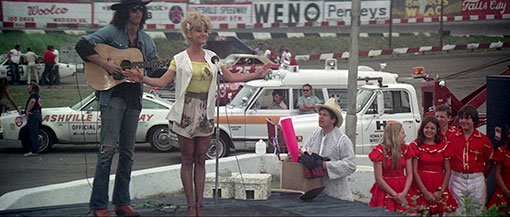
Less convincing is the ever-present and infuriating Opal, who pesters everyone like a persistent blowfly, and whose complete disregard for protocol, privacy and personal space borders on caricature. I never really bought her as a genuine BBC documentarian – it took screenwriter Joan Tewkesbury, in the interview on this disc, to make me aware that she may not be a reporter at all, but a reality-disconnected groupie using the cover of a documentary journalist to gain easy access to those who might otherwise be distanced by their fame.
Despite the lack of an overriding story, Altman's collaborative approach to character creation and storytelling allows small micro-narratives to almost organically evolve, encouraging us to look beyond what we are shown to the unspoken events that have shaped these people's lives. That few of them undergo any significant change in the course of the five days over which the film is set is not that surprising, as most seem trapped in a status quo loop (and I'm not talking about the opening verse of 'Caroline' played over and over again), a cycle that for some is shattered by a climactic event that looks set to inadvertently launch one career as it ends another. We're left to speculate on how it will effect the majority of the characters here, whether their lives will be changed or, after a period of temporary adjustment, they will simply return to their old ways and routines.
Altman is more than just a facilitator for talented performers here, though that's certainly an area in which he shines and on which his subsequent reputation was partly built. What really strikes you is the confidence and precision with which he marshals so many elements, some of which are realised on a grand scale. Despite its large cast and seemingly loose structure, Nashville is not a film you would describe as sprawling, and despite darting back and forth between so many characters, there is never a moment's confusion about who is who and to whom they are connected. And watching it twice in the space of a few days, I was left with the conviction that there's hardly a wasted moment here. Not bad for film with a wafer-thin narrative and a running time of two hours and forty minutes.
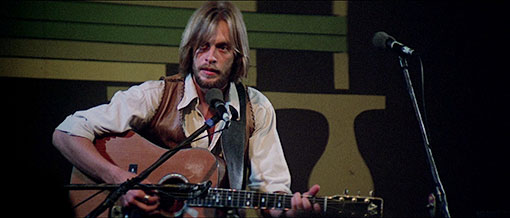
You may well have picked up that in my enthusiastic reassessment of the film, I've carefully danced around the subject of the music, and given that the live performances constitute almost a third of the film's running time, it's not something that can be easily ignored. If you do find the music hard work (guilty as charged), then there are a few sequences here that all the rich characterisation and smart direction in the world are not going to make any easier to digest. That the songs were largely composed by the actors who sing them (including one by Gary Busey, who dropped out the film at an early stage) is nonetheless impressive, and as Altman states on the commentary track, he never intended that the songs all be good, preferring instead that they accurately reflect the range of musical quality found in Nashville itself. It's perhaps a tad ironic, given my curious first viewing irritation at Keith Carradine's character, that it's he who delivers what for me is far and away the film's best song, the gentle and folksy 'I'm Easy', which also won Nashville its only Oscar and Golden Globe. It's surely no coincidence that the sequence in which the tune is performed it is one of the best in the film, as Tom sings soulfully to an audience that is peppered with women he has previously slept with and the one he has been chasing, each of whom believe the tune is targeted at them.
Revisiting Nashville after so long a gap, and so many other fine films from all corners of the globe, was a revelatory and unexpectedly invigorating experience. For once the claims made that this character study could also be read as a portrait of early 70s America made complete sense to me, with representatives from a variety of walks of life, and encounters layered by their socio-political subtext (Haven's angry dismissal of the long-haired keyboard player; the hippy-ish Tom's goading of the uniformed Glenn; the fateful final scene; the political speech being broadcast by Hal Phillip Walker's campaign van, which underscores the entire first third of the film; and so on). Such layering really does reward multiple viewings, and watched in retrospect, you can see Altman laying the foundations for the 1993 Short Cuts, another work of epic ambition involving multiple characters and crossover stories that collectively build to a potentially life changing climax. It's also an object lesson, if needed, in the importance of giving those films you may have dismissed in your youth the second chance they deserve. They may just surprise you. Big time.
Having not seen the film for so long I have little but faded memories to compare this new HD transfer to, so I'll have to judge it purely on its own merits, and they are considerable. This is a lovely transfer, boasting a crisp, clean and wonderfully detailed 2.35:1 picture with naturalistic colour (oh how I miss this) and a finely balanced contrast range. The colours are rich when they need to be – as with the stained glass window that kicks off the creepy churchgoing sequence – and the black levels solid without sucking in too much detail, even in the darker interior scenes. A fine film grain is visible, but there is no sign of unpleasant enhancement issues. Those who have been able to make the comparison put it on a par with the Criterion US release, which should give you an idea what to expect. The reduced size grabs here really do not to the image quality justice. A superb job.
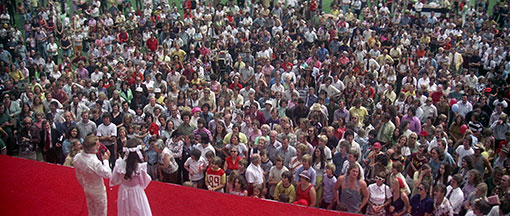
Click on picture for full sized screen grab
The DTS-HD Master Audio track may not be quite as dynamic as more recent music themed films, but this is still an impressive mix, one whose clarity of dialogue, even in the busiest sequences, is down in no small part to Altman's decision to record live sound on an 8-track recorder and individually mic his actors, affording him far greater control over the final mix. The music performances are of a very high quality, and the stereo separation here is particularly lively. The surrounds are more subtly employed for location ambience.
Commentary
Recorded in 2000 and containing its share of dead spots, this commentary by director Robert Altman is nonetheless an invaluable companion to the film. Altman divides his attention between commenting on the process of shooting specific scenes and more generalised recollections of making the film. Casting decisions and his work with the actors are covered, and there are some useful insights into his approach, and even the technical and logistical aspects of shooting scenes on such a large scale. He reflects on the fact that while the people of Nashville were helpful to a fault when they were making the film, the music community there initially hated the finished result, largely because Altman chose not to use their songs. "I wasn't looking for good music," he says tellingly, "not that they make much of it here." Probably my favourite moment is a throwaway comment about how he, Keenan Wynn and Lee Marvin used to go out to the desert with other tearaways and "ride motorbikes and try to kill ourselves." Now there's an image for you.
Robert Altman (2000) (12:25)
An engagingly open Altman explains how the project came about and discusses the casting of key roles, and the guidance he gave to writer of the film's political speech, Thomas Hal Phillips. The political aspect is identified as the driving force of the film, and there's some specific discussion of the final scene, so first timers would do well to steer clear of this until they've watched the film.
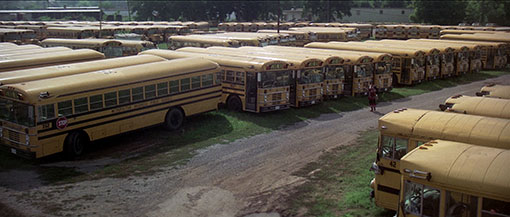
Robert Altman (2001) (10:15)
In a second interview, shot in London just after the completion of filming on Gosford Park, Altman entertainingly explains how and why he first got started in the film business ("It was all about girls...and sex"), and again covers how Nashville got off the ground, but in more detail than the interview above. He celebrates the fact that this was the first film on which he had complete creative control, and likens making a film to painting a mural. A most engaging chat.
Joan Tewkesbury (24:21)
The hugely likeable and whip-smart Tewkesbury, filmed in Los Angeles in 2001, recalls her early days in experimental theatre, how her friendship with Michael Murphy led to her first meeting with Altman and her apprenticeship as script girl on McCabe and Mrs Miller, and how her first viewing of M*A*S*H changed her life and career. She reveals that her intention was to give Nashville a circular structure to reflect the layout of the city, discusses the inspiration for a number of the characters and scenes, and explains how her view of the character of Tom Frank differs from Altman's, suggesting in the process that she and Altman differed similarly about all of the characters. She suggests that the film says more about the state of the world now than it did in 1975, and pines for the sort of films that were being made in America in the 1970s. We're with you on that one.
Michael Murphy (13:17)
The highly engaging Murphy recalls first meeting Altman and his early work with him, how different his way of working with actors was to other directors, and how drastically the film of M*A*S*H deviated from Ring Lardner Jnr's script (which won an Oscar – how ironic). His work on Nashville is covered in more detail, and he suggests that Altman liked him as an actor because he looked so straight and he could get him to do strange things.
Theatrical Trailer (2:12)
An intriguing trailer with a fluffy soundtrack that provides a brisk breakdown of the main characters, including a couple I missed in my summary. Perhaps I should have watched this before writing the review. They missed Scott Glenn's soldier, though. Hah!
Booklet
Given the high regard in which both Altman and Nashville are held, I was expecting a number of essays and articles here, but there's only one, an analysis of the film by Adrian Martin. Fortunately it's a good one, highlighting a few elements that hadn't caught my eye and prompting me to revisit some scenes. There are also a number of production stills, credits for the film and the disc, and the usual notes on viewing.
When it comes to re-evaluating films you misunderstood in your youth, it's actually hugely satisfying to eat humble pie and see those films in a new and rewarding light. Such was certainly the case with Nashville – I may still have (personal) issues with the music, but in all other respects it proved a hugely satisfying experience, and I was left genuinely awe struck for Altman's skill at marshalling large scale scenes, multiple characters and interlocking sub-stories. The Blu-ray in this Masters of Cinema dual format package is an absolute treat, with a lovely transfer and some fine extra features. Highly recommended.
|